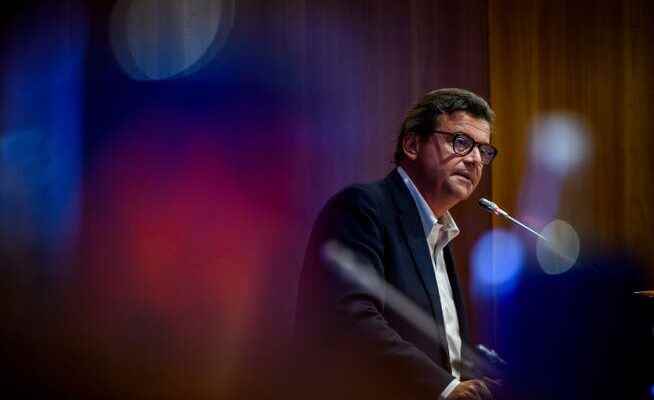Because the Social Democrats are getting more partners from the left-green milieu on board, the centrists are turning their backs on the anti-Meloni alliance. This increases the right-wing parties’ chances of winning the elections at the end of September.
Carlo Calenda, the party leader of Azione, thwarts former Prime Minister Letta’s alliance plans with his departure.
Enrico Letta is not to be envied. The head of the Partito Democratico (PD), Italy’s social democratic party, has been trying for days to form a broad alliance against the right-wing parties around Giorgia Meloni. Together, they are currently clearly ahead in the polls and have a good chance of winning the elections on September 25th. Observers and pollsters agree that Meloni and her comrades-in-arms Salvini and Berlusconi can only be defeated if left-wing and moderate forces unite. The current electoral system favors alliances and punishes going it alone.
Who carries on Draghi’s legacy?
But Italy’s parties have traditionally found it difficult to cooperate – which was particularly evident again at the weekend. As soon as Letta had reached an agreement with forces further to the left, the Greens and the circles around Foreign Minister Luigi Di Maio, on Saturday the party leader of the Azione, Carlo Calenda, reported back out of the alliance.
The Azione is a relatively small center party. Your participation would have been particularly important, however, because it would have been possible to get votes from the moderate middle-class camp. It would also have been an important signal to those voters who want Mario Draghi’s ousted government to continue its course. These should not be few.
After Calenda’s sudden departure, Letta’s alliance mutated into a left-wing alliance. Commentators are already wondering whether, under these circumstances, it would be appropriate to offer the Cinque Stelle a place under the umbrella of the left again. So far, Letta has strictly opposed it, because the Cinque Stelle played a key role in the overthrow of Mario Draghi’s government.
«Lack of coherence of values»
Calenda for his part justified his withdrawal on Sunday with the “lack of coherence of values”. With the admission of other parties from the left-green milieu, the liberal part of the alliance will be destroyed. “It’s one of the most painful decisions I’ve made since I’ve been in politics,” Calenda said.
In terms of content, his criticism may be justified, but given the current state of affairs, it should not work in terms of electoral tactics. Calenda will not break any major ropes on its own, but Meloni and Co. should benefit. And it is very questionable whether the repeatedly dreamed-of “third pole” will come about from the scattered small liberal parties and have an effect at the polls.
“From what he’s said, it seems to me that Calenda’s only possible ally is Calenda,” he said commented an unnerved PD chief Letta the rapid departure of his short-term comrade-in-arms. Letta is running out of time. The election campaign is short and his opponents, despite differences that certainly exist, make a relatively compact impression. Giorgia Meloni, Lega boss Matteo Salvini and Silvio Berlusconi are currently not getting lost in disputes like the left and moderate forces. The right-wing seems to have managed to keep the egos of the party leaders somewhat under control – for the time being.
